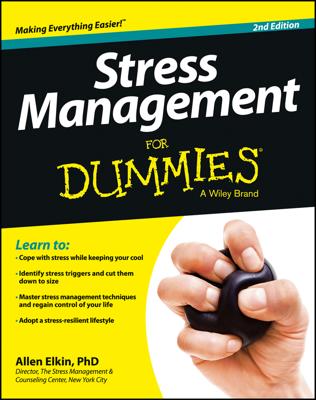Your reactions to stress are partly based on what you assimilated in childhood, partly genetic, and partly based on your own experiences with stress. If whoever brought you up reacted in a certain way to stress, you have a greater chance of behaving in a similar way.
Your own experience of ways of dealing with stress also comes into the equation. Perhaps you’ve always drunk several cups of coffee when you’re feeling stressed, and find the caffeine helps you to get your work done. Although you may feel this is effective, caffeine is a stimulant and the more you drink, the more stressed you’ll probably become.
Reacting automatically implies a lack of choice. Through practicing mindfulness, you begin to have a greater choice of ways to respond, and can thereby achieve a more satisfactory outcome.
Make a list of the unhelpful and helpful ways you deal with stress:
-
Unhelpful reactions may include drinking too much alcohol or caffeine, negative thinking, zoning out, working even harder, or eating too much or too little food.
-
Helpful responses may include going for a walk, exercising, meeting up with friends, meditating, or listening to music.
-
Become more aware of the choices you make following a stressful event, and begin choosing small, helpful strategies such as going for a walk. Make use of mindfulness skills to help you to make wiser choices.
-
Notice your current reactions.
What are your body, mind and emotions doing? Are they showing the signs of stress? Acknowledge the fact that you’re suffering from stress. Observe how you’re reacting to the stress. Your body may be tense in certain places. Perhaps you’re suffering from indigestion or have had a cold for weeks. Your behavior may be different to usual.
You may be snapping with anger for the smallest thing. You may not be making time to meet up with friends. Your emotions may be fluctuating. You may feel tired or out of control. Your thoughts may be predominantly negative. You may have trouble concentrating. At this stage, you need to become aware of what’s happening, without judging the situation as bad or wrong – just be aware, without the judgment.
By becoming aware of what’s happening within you, the experience is already transforming. This is because you’re observing the stress, rather than being the stress. As the observer of experience, you’re no longer tangled up in the emotions themselves. You can’t be what you observe.
-
Choose a mindful response.
Now, from an awareness of the level of stress you’re experiencing, you can make a wise, mindful choice as to the best way to cope. You know yourself better than anyone else – you need to decide how best to cope with the stress. As you become aware of your own inner reactions, you make space for creative action to arise rather than habitual, well-worn paths you’ve chosen many times before.
Here are some suggestions for a mindful response to your stress:
-
Take as many mindful breaths as you have time for.
-
Do a three-minute mini meditation, or practice a formal mindfulness meditation for a more extended period.
-
Go for a walk, perhaps in the park, or do some yoga, tai chi or stretching exercises.
-
Avoid excessive alcohol, caffeine, drugs, and sugary or fatty foods.
-
Talk to someone or socialize.
-
Watch a hilarious comedy.
-
Observe the stress rise up in your body-mind, and fall away. Consider yourself as the witness of stress – whole, complete and free just as you are.
-
Do some vigorous but mindful exercise such as running, swimming or cycling.
-

